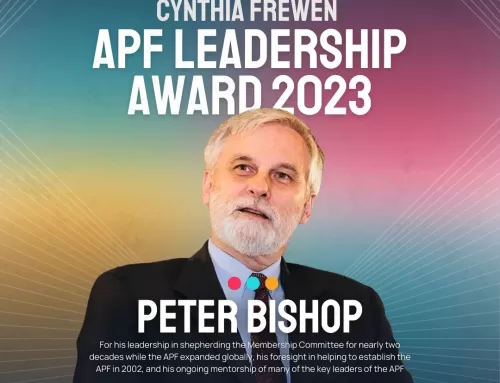“Forecast, measure, revise. Repeat.”
Superforecasting:The Art and Science of Prediction, a book about discerning the future is igniting a lot of discussion in the media about strategy and accuracy of forecasters and futurists. Co-authors Tetlock and Gardner seek an “evidenced based forecasting revolution,” telling us that forecasting is a skill we can cultivate and need to evaluate as critical consumers of foretold futures.
about strategy and accuracy of forecasters and futurists. Co-authors Tetlock and Gardner seek an “evidenced based forecasting revolution,” telling us that forecasting is a skill we can cultivate and need to evaluate as critical consumers of foretold futures.
Tetlock’s crowd-sourced “Good Judgment Project” excelled in a tournament by Intelligence Advanced Research Projects Activity (IARPA) to produce accurate forecasts for discrete potential futures, providing insightful data into how we can learn from super-forecasters.
Super-forecasters, who tend to be hedgehogs (‘know just one big thing) rather than foxes (know many little things), are good because of what they do, not who they are. For successful forecasters, foresight is the product of particular ways of thinking and habits of thought which can be learned: updating beliefs, gathering information, numeracy, being self critical and committed to self improvement.
The big impact in the media is that those watching and building futures can become more critical consumers of forecasting as forecasters sharpen their skills with practice and feedback.
In the Media:
The book and authors have been making a compelling impact in the media and waves in the foresight community. Most notably featured on CNNs Fareed Zakaria GPS and in the NY Times, and the Telegraph. The book’s media impact has expanded visibility and discussion of strategic approaches that make grounded analytical models for looking at the futures approachable.
Takeaways:
“The super forecasting project and traditional forms of scenario-based thinking are deeply complementary,” Philip Tetlock told me when I reached out to him for comment about the overlap of his book’s forecasting lessons for the work of foresight.
In a complex world where unpredictability and predictability coexist the book which looks at “tools for structuring our thinking about what is likely to happen if we venture down one policy path or another” gives us an opportunity to ask how to address decision making in uncertainty and meld foresight’s alternative futures with long range forecasting.
Tetlock and Gardner explore through research and a prediction approach of Foresight example the skills and methods that go into crafting successful and accountable forecasts. We in foresight are pushed to question: where we receive feedback for learning and refining methods and forecasts, how we understand identity of futurists, the power we give concrete expectations of the future and accountability, the context of probability terminology and measures of confidence, how forecasts can be best communicated, the roles of teams and the crowd.
We will watch the expanding web of impacts the book has on Foresight and where it appears in the Foresight curriculum (do you believe that it should?). I anticipate a refining of foresight at the interface of forecasts with an increase in the (critical) demand for the work of professionals watching our futures. I concretely and publicly forecast an expansion of the visibility of futures work and of the what and the how of futures work and the partnerships futurists form. I hope we openly revisit this forecast to learn and refine as we close in on the big questions of forecasting.
– Joe Murphy
The Book’s Authors:
Philip Tetlock, responsible for the Good Judgement Project forecasting tournament, is Annenberg University Professor in the University of Pennsylvania’s Wharton School of Business and Psychology Department. Tetlock has also written Expert Political Judgment. http://www.sas.upenn.edu/tetlock/, https://twitter.com/PTetlock
Co-author Dan Gardner is a Canadian journalist and author of Future Babble: Why Pundits Are Hedgehogs and Foxes Know Best and The Science of Fear. http://dangardner.ca/, https://twitter.com/dgardner
About Futurists in Media: The Houston Foresight program is tracking, collecting and analyzing mentions of futurists in the media in order to gather evidence for how we are being talked about in order to inform a potential strategic response.

